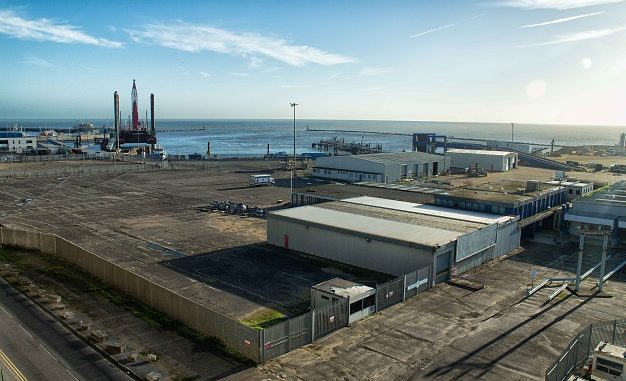
A £13.8 million government contract with Seaborne Freight to provide extra ferry capacity in the event of a no deal Brexit on March 29 has been terminated.
The firm was awarded the contract in December despite being a start-up company with no vessels or track record as yet.
The firm, which says it is proposing to run a Ramsgate/Ostend service, had said operations would start in late March – to coincide with the UK withdrawal from the European Union – initially with two ships.
But the Department for Transport has now reportedly said the agreement has been axed as Seaborne would not reach its contractual requirements and the firm’s backer Arklow Shipping has pulled out of the deal.
Arklow Shipping, which is based in Ireland and also has operations in Rotterdam, has a fleet of modern singledeck, box hold and container fitted vessels ideally suited for the carriage of project cargoes, grain, generals and bulk commodities. It does not have ro-ro vessels.
Arklow’s involvement had not been made public prior to the announcement of Seaborne’s contract being terminated. Thanet UKIP leader Chris Wells, who had been in talks with Seaborne when the party held a majority on the council, said on a social forum: “At no time during discussions at TDC regarding Seaborne was the name of Arklow in the conversation.”
A DfT spokewoman told Reuters that the government is in advanced talks “with a number of companies” to secure additional post Brexit freight capacity — including through the Port of Ramsgate.
Despite prolonged negotiations no deal has been signed with Thanet council or the Port of Ostend for the route.. A service had been mooted to start in March last year but the date came -and went – with no sign of progress.
Under fire
The contract award to Seaborne came under fire from Labour MPs and a Parliament select committee, which last month questioned the legality of the ferry agreements, particularly Seaborne Freight.
The DfT says no monies have been paid to Seaborne and that the government stood by the due diligence carried out on the firm.
In Parliament Secretary of State Chris Grayling previously said Seaborne’s “business and operational plans were assessed for the Department by external advisers, including Slaughter and May, Deloitte and Mott MacDonald.
“These included Seaborne’s plans to charter vessels for service, as is common across many transport modes including airlines and rail operators. We also conducted searches on the directors of Seaborne via a third party, and found nothing that would prevent them from contracting with the Government.”
A spokesman for Seaborne Freight said: “It is with regret that Seaborne Freight is not in a position to add any further comment, as we remain bound by a confidentiality clause with the DfT.”
Budget disruption
The lack of progress also prompted the inclusion of plans to ditch £500,000 funding to keep Ramsgate port in readiness for a ferry operation and axe a further £130,000, totalling £630,000 (or £730,000 in a full year) from Thanet council’s 2019/20 budget.
A report to Cabinet members at a meeting last month said Thanet council would be “at significant risk of overspending the proposed budget,” unless the action was taken.
The authority needs savings of £1.8 million in order to balance the books. Councillors have been told the biggest expense is at Ramsgate Port.
But the budget report was withdrawn on Thursday following discussions between Thanet council leader Bob Bayford and Secretary of State for Transport Chris Grayling.
Council leader Bob Bayford said that although an ‘uncomfortable decision’ may have to be made to close sections of the port and make cost savings an approach from the Department for Transport would now delay that until a date on or before March 11.
He added that the importance of Ramsgate in Post-Brexit resilience plans had been recognised and the DfT was keen to “keep the option of Ramsgate alive.”
Cllr Bayford said a decision would be made by March 11. It is not clear whether the ending of Seaborne’s contract will now bring this forward.
Brexit resilience
The aim of the DfT contracts with Seaborne until cancellation, DFDS and Brittany ferries, is to alleviate pressure on Kent’s roads which would come with a ‘hard border’ and could lead to a backlog of traffic, particularly HGVs, trying to access Dover Port and the Eurotunnel.
In November Thanet council said the Port of Ramsgate could have the potential to provide enough sailings to divert 3,360 lorry movements per day from the planned Operation Brock queuing system on the M20 and M26 to support ‘post-Brexit resilience.’

